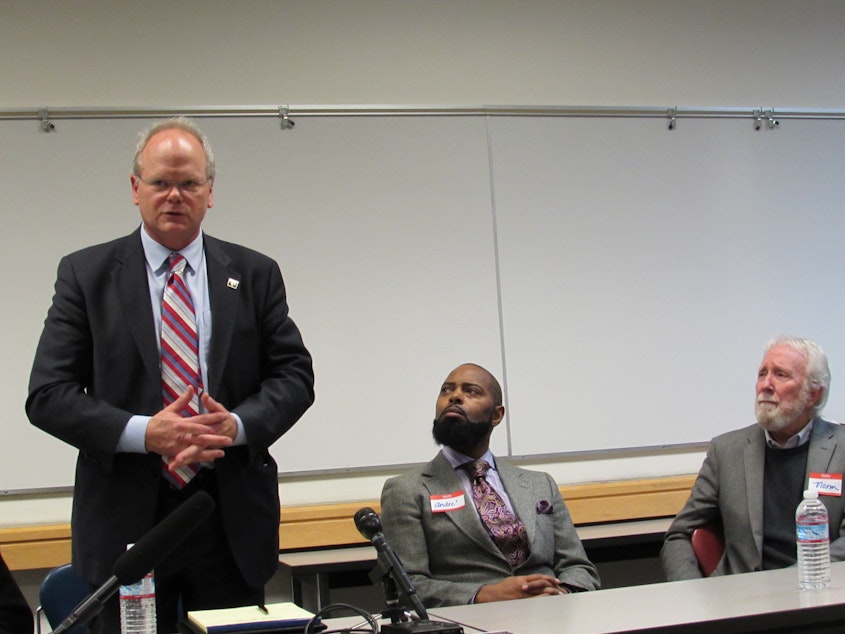Seattle officers who shot Che Taylor won't face charges

Two Seattle police officers who shot and killed a 47-year-old African-American man last year will not face criminal charges.
Che Taylor's family called the decision disappointing.
King County Prosecutor Dan Satterberg said Tuesday that the officers acted within the scope of the law.
He said they believed Taylor was reaching for a gun when they shot him.
"Because they were confronting a suspect they knew to be armed, the officers reasonably believed that their lives were in danger when he moved his hands out of their sight and into the passenger compartment of the car,” Satterberg said.
“Their use of deadly force at that moment was authorized by law."
The officers involved in the case, Michael Spaulding and Scott Miller, were conducting undercover surveillance at an apartment complex in February 2016 when they recognized Taylor.
Officer Miller testified that he saw a holstered gun on Taylor’s hip. Because Taylor had recently been released from prison, it was illegal for him to be in possession of a firearm. The officers radioed for backup.
About 45 minutes later Taylor emerged from an apartment and the officers moved in to arrest him for possession of a firearm.
They approached with long guns drawn as Taylor was standing next to the open passenger door of a car.
The officers told Taylor to raise his hands and get on the ground. Taylor brought his hands to chest height and moved toward the ground. As he did so, the officers say he leaned towards the car and moved his arm as if to draw a weapon.
“Neither Spaulding nor Miller saw a gun in Che Taylor’s hand before firing their weapons," said Satterberg in a prepared statement. "However, both officers testified they believe he was drawing a gun based on the motion they observed.”
No gun was found in Taylor’s hand after he was shot. A gun was found in the car near where Taylor fell. The Taylor family has questioned whether or not he was armed when he was shot.
Satterberg acknowledged that broader issues were raised by this case, including police training and state laws about prosecuting police officers.
“Questions about tactics, training and policy are raised in many of these tragic cases involving the police use of deadly force. And these are issues that the family can and should discuss with the leadership of the Seattle Police Department.”
Satterberg said his decision deals purely with the legality of the officers’ actions. And he believes they acted within the scope of the law.
It's difficult to prosecute police for the use of deadly force in Washington state because malice and a lack of good faith must be proven.
Taylor's family has called repeatedly for the law to be changed. A bill that would change the law is stalled in the state legislature.
"This is the message that Washington is sending the community: that in Washington there is nothing an officer can do that makes his behavior wrong when he chooses to use deadly force,” said Andre Taylor, Che Taylor’s brother.
Even if the law was changed Satterberg said he would have come to the same decision in this case.
“There’d have to be a fundamental change to the facts for me to reach a different decision.”
The family believes justice has not been served. They said the officers escalated the situation unnecessarily and that Taylor was not given enough time to comply with the officers’ instructions.
“The way they chose to approach Mr. Taylor made a situation in which his death was inevitable,” said Corey Guiltmere of the Public Defenders Association. Guiltmere represented the Taylor family at a recent inquest into the shooting.
Taylor's wife, Brenda, said the officers who shot her husband need to be held accountable.
"I'm very irate that these officers are not being charged for assassinating my husband. I stood there and watched him assassinate him on TV. And I'm just appalled that they're getting away with this."
The family said the next step is to file a civil lawsuit.
